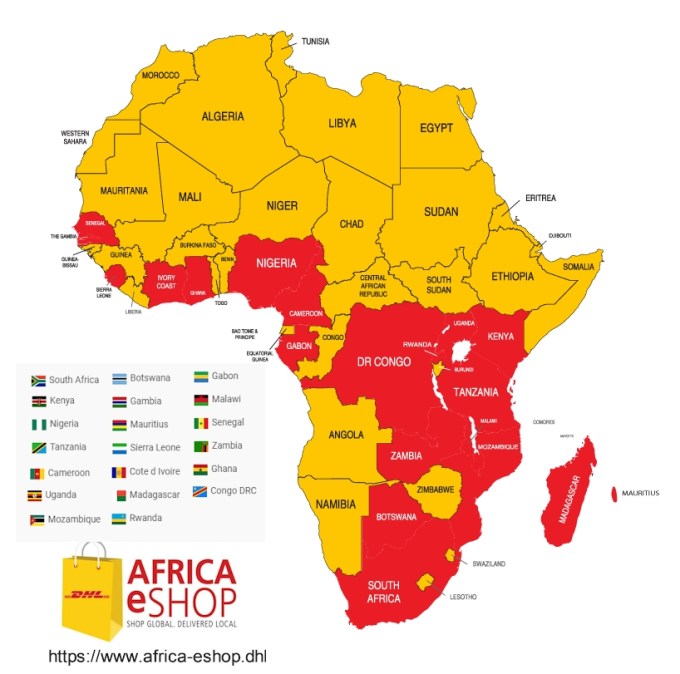
DHL is scaling its eShop in partnership with MallforAfrica. Jumia operates in 14 countries – DHL eShop is in 20 countries. The biggest competitor Jumia has now is DHL. It has brought excess of 200 U.S. and European top brands like Neiman Marcus and Carters online to Africans. If you take DHL’s supply chain advantage through its existing delivery structure built over decades, you can see that its claim that it is “Africa’s Largest Online Shopping Platform” makes sense.

Why? Ecommerce in Africa will be won on logistics as that is where the marginal cost issue required for scaling is domiciled. According to McKinsey & Company consumer spending will hit $2.1 trillion by 2025, with e-commerce accounting for up to 10%, in Africa. Many will put money in this sector but if you do, do not ignore what DHL is doing as it is mopping the best online sellers – typically foreign brands – at scale.

All Together
When you look at the whole elements, ignoring the open market [the one everyone wants to take down], and Facebook and Instagram which are auxiliary competitors, the main competitor to Jumia now is DHL. With DHL’s logistics capability, it has the easiest route to become the Amazon of Africa that can help people buy things on Kenyan e-stores and get them next two days in Lagos. Those e-stores could be DHL eShops and that is why its positioning is strong in the continent’s ecommerce sector.
Tekedia Mini-MBA edition 16 (Feb 10 – May 3, 2025) opens registrations; register today for early bird discounts.
Tekedia AI in Business Masterclass opens registrations here.
Join Tekedia Capital Syndicate and invest in Africa’s finest startups here.
---
Register for Tekedia Mini-MBA (Feb 10 - May 3, 2025), and join Prof Ndubuisi Ekekwe and our global faculty; click here.

